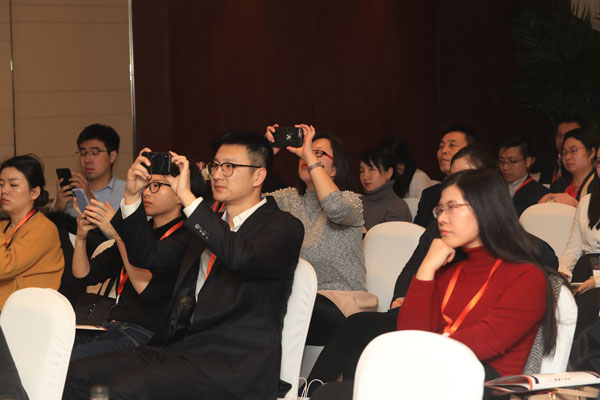Panel III: Discussion of Hot Issues on Judicial Trial of Copyright
On December 26, 2018, the "First Case" of Beijing Internet Court, which received great attention of society——the dispute case of infringement on the transmission right of work information via internet, namely Tik Tok Short Video v. Huopai Small Video, was pronounced publicly. The plaintiff, Microlive Vision Technology Co., Ltd’s all requests were rejected on the judgement of first instance. The case produced a broad discussion about the similar issues within the industry.
Against a backdrop of impact on the traditional copyright concept by the ebullient short videos, the 9th China IP International Annual Forum and 2019 Annual Conference of In-House IP Managers in China particularly established the parallel panel on the theme of "Discussion of Hot Issues on Judicial Trial of Copyright", invited people from judiciary, academia and enterprise industries to jointly discuss the copyright determination of short video, the judgement of short video infringement, the application of short video in the Copyright Law and the affirming factors with which the video sharing platform forms an information storage space and so on.
The most important feature of short video is the "shortness". How does this feature affect the recognition of short video as a work? The guests first conducted the discussion on this important question.
The guests reached a consensus that short videos of belonging to work should not be denied only because of their duration feature. Meanwhile, the guests analyzed other influence factors from the viewpoints of originality, scenario setting-up, market evaluation with which to determine whether short video belongs to work.
Additionally, the guests exchanged their views on how to judge the notice sent by obligee to the infringing platform is valid, how to determine whether the internet service providers have fulfilled their reasonable obligations and so on. Some guests believed that the channels and methods of obligee to send notice won't affect the judgement validity of sending the notice and the obligee only need to prove that the providers of the internet service have been informed of the notice; But other guests believed that the obligee should respect the industry practice, actively choose the public complaint channels of the network service providers to send the notice of infringement, fully reflecting their good will.
The third topic focused on the determination of the nature of short videos' watermarks. In the case of "Tik Tok vs. Huopai", should the "Tik Tok" watermark and the watermark of users' personal information in the short video be determined as a technical measure to protect copyright, or the electronic information to manage rights? The guests believed unanimously that technical measures must have the validity of preventing other people from using the work, and at present, a majority of short videos can only show the identities of the transmitters and users of the video work, so it will be more reasonable to determine them as electronic information of managing rights. At the same time, the guests also discussed the legal relation between the behavioral nature and the infringement obligations of the short video platforms, who acted as the network service providers or content service providers of information storage space.
In the last topic, the guests explored the calculation methods and reference factors of the damage compensation of short video infringement. In the case of "Tik Tok vs. Huopai", the referential factors using to calculate the tort damages advocated by the plaintiff mainly included the video view, play time and the followers count of the original author's and other flow values.
The guests affirmed the key role of the flow value as a reference standard of calculating the short video tort damages.
At the end of the above discussions, the guests and the audience had an interactive exchange on other issues related to the judicial judgement of copyright. With rich information, plural view points and profound exploration, the panel had excellent guidance meaning for solving the new problems in copyright judicial field caused by short videos. The panel was chaired by Li Yang, Professor of Law School of Sun Yat-sen University and Qi Lei, Judge of Civil Adjudication Tribunal No.3 (IPR Division) of Beijing Higher People's Court; Yao Bingbing, Chief Judge of Nanjing IP Tribunal; Yang Dejia, Chief Judge of IP Tribunal of Beijing Haidian Court; Li Zizhu, Chief Judge of IP Tribunal of Beijing Chaoyang Court; Yu Jie, Judge of Wuhan IP Tribunal; Deng Hongguang, Professor of School of Law, Southwest University of Political Science & Law and the Director Diao Yunyun from Tencent Litigation Department attended as discussion guests.



